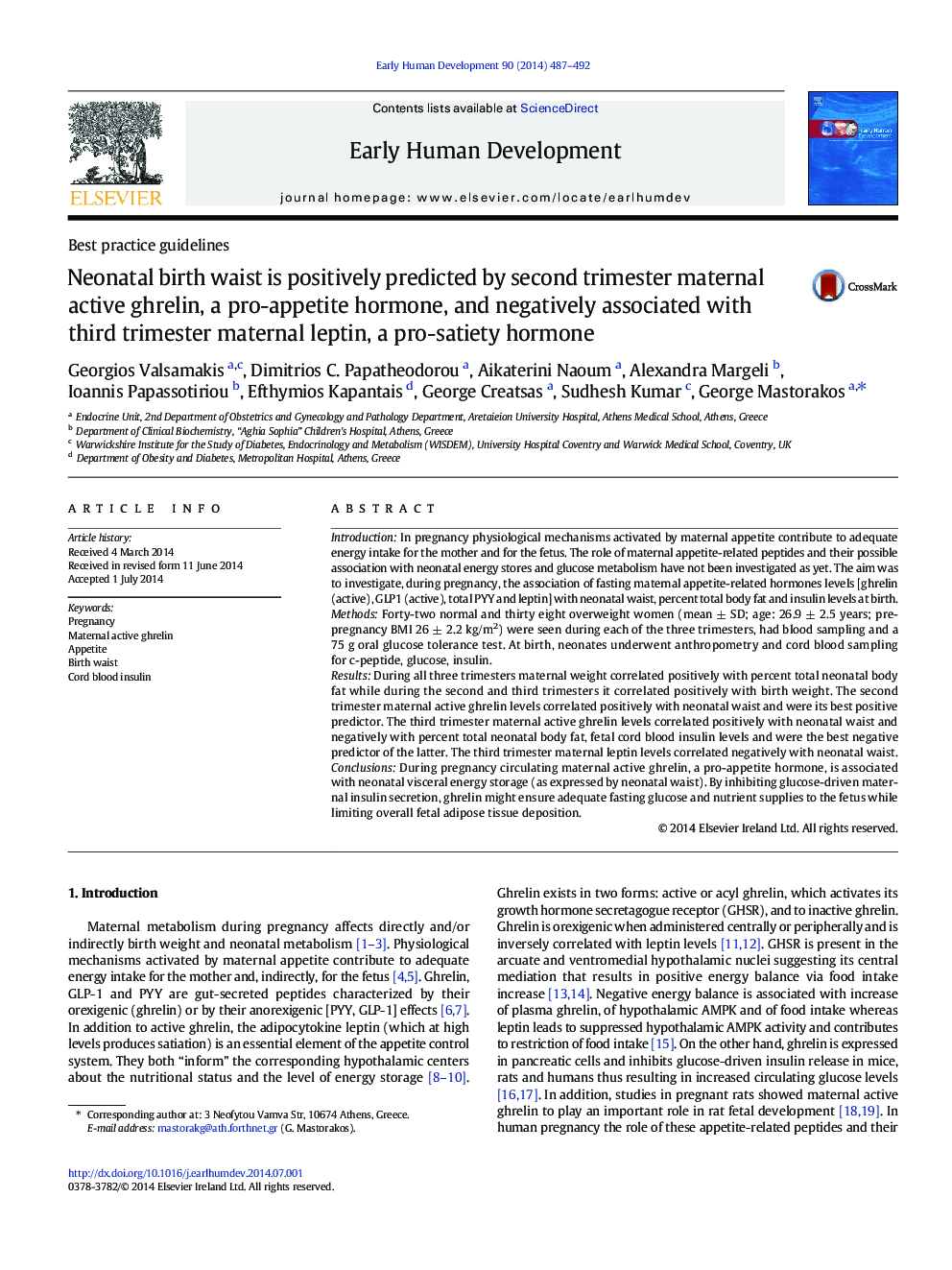| Article ID | Journal | Published Year | Pages | File Type |
|---|---|---|---|---|
| 3916512 | Early Human Development | 2014 | 6 Pages |
•Maternal ghrelin a pro-appetite hormone is associated with neonatal visceral fat.•Maternal ghrelin was the best negative predictor of cord blood insulin levels.•Maternal ghrelin might ensure adequate glucose and nutrient supplies to the fetus.
IntroductionIn pregnancy physiological mechanisms activated by maternal appetite contribute to adequate energy intake for the mother and for the fetus. The role of maternal appetite-related peptides and their possible association with neonatal energy stores and glucose metabolism have not been investigated as yet. The aim was to investigate, during pregnancy, the association of fasting maternal appetite-related hormones levels [ghrelin (active), GLP1 (active), total PYY and leptin] with neonatal waist, percent total body fat and insulin levels at birth.MethodsForty-two normal and thirty eight overweight women (mean ± SD; age: 26.9 ± 2.5 years; pre-pregnancy BMI 26 ± 2.2 kg/m2) were seen during each of the three trimesters, had blood sampling and a 75 g oral glucose tolerance test. At birth, neonates underwent anthropometry and cord blood sampling for c-peptide, glucose, insulin.ResultsDuring all three trimesters maternal weight correlated positively with percent total neonatal body fat while during the second and third trimesters it correlated positively with birth weight. The second trimester maternal active ghrelin levels correlated positively with neonatal waist and were its best positive predictor. The third trimester maternal active ghrelin levels correlated positively with neonatal waist and negatively with percent total neonatal body fat, fetal cord blood insulin levels and were the best negative predictor of the latter. The third trimester maternal leptin levels correlated negatively with neonatal waist.ConclusionsDuring pregnancy circulating maternal active ghrelin, a pro-appetite hormone, is associated with neonatal visceral energy storage (as expressed by neonatal waist). By inhibiting glucose-driven maternal insulin secretion, ghrelin might ensure adequate fasting glucose and nutrient supplies to the fetus while limiting overall fetal adipose tissue deposition.
